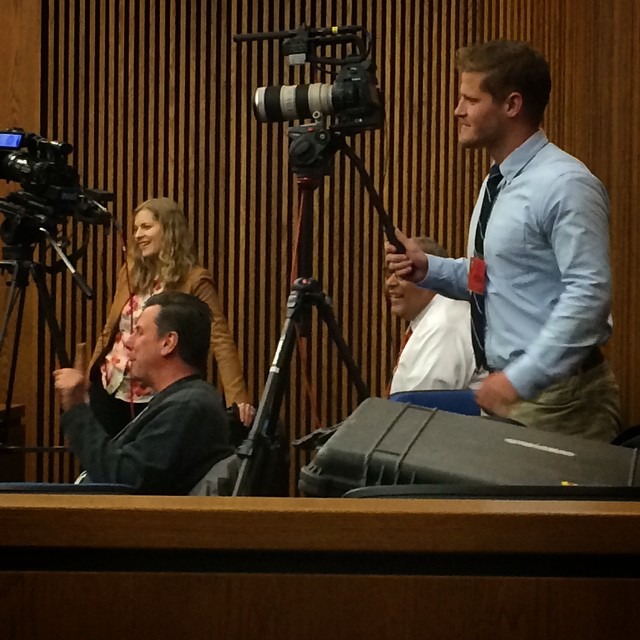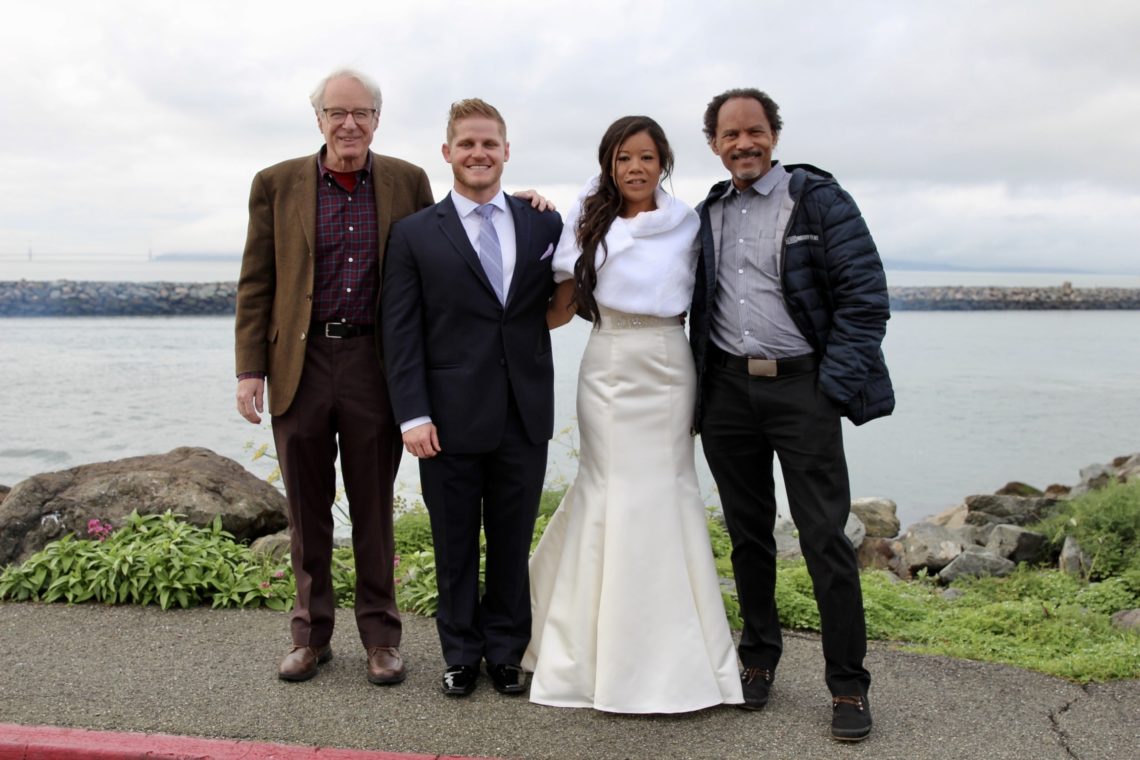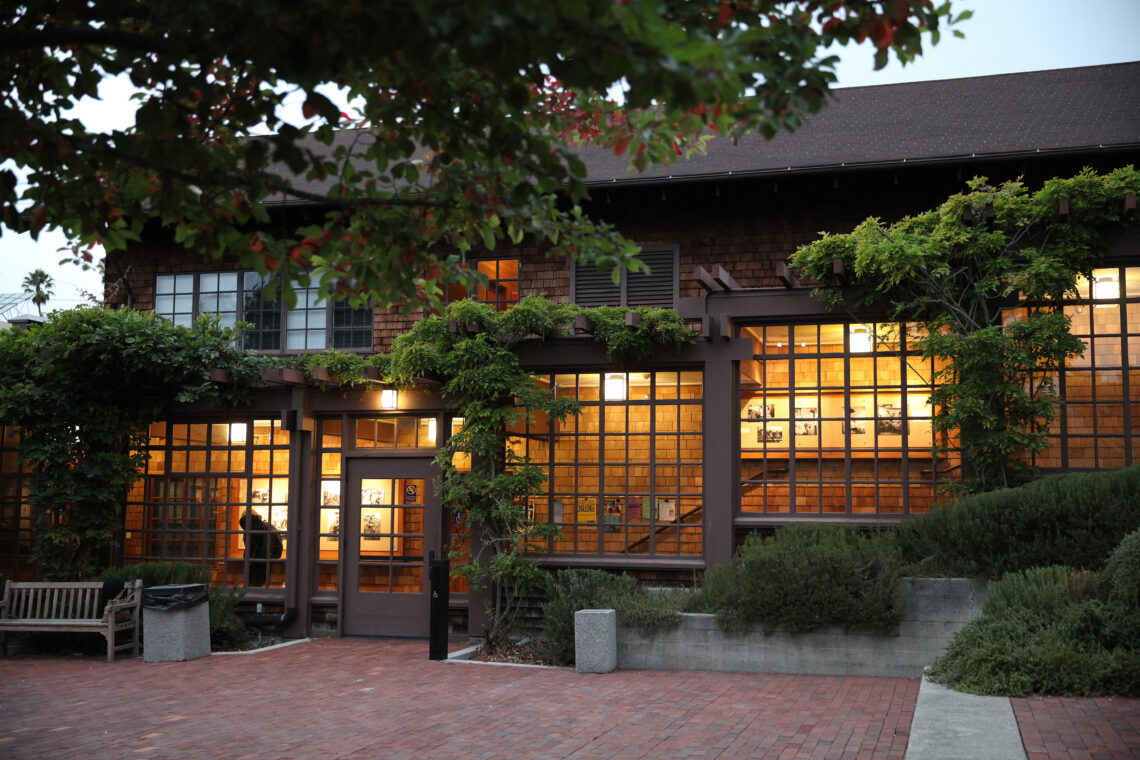Michael Milano doesn’t like interviews. It is not that he doesn’t like people — he loves people, and people, generally, love him. But he says everything he wants to say is in his work. He gave very few interviews after his two widely acclaimed films came to light and those were not to the biggest papers but to his local media outlets. That is Mike. He does films about the people and for the people, stories deeply entrenched in the communities where he’s lived. “Hoping to bend those communities evermore towards justice,” Milano said, echoing the famous MLK quote that rings through in his Netflix Film, “137 Shots”, which was just nominated for an Emmy in the “Outstanding Current Affairs Documentary” category. That’s how we got him to talk to us — as part of the J-School community he continues to belong to as a beloved alumnus.

Milano (‘15) started as a writer. He says he’s still a writer, “most fundamentally.” He wrote the “137 Shots” story first as a piece for Adam Hochschild‘s advanced narrative writing class. The tragedy occurred in Milano’s hometown, Cleveland, OH, in 2012 and entailed a sixty-five car police chase culminating in thirteen officers firing 137 shots at two unarmed, homeless victims. While at J-School, for Milano, the story morphed from a written piece to a documentary. “There were just so many audio-visual elements that it became clear we could show the madness of what happened that night better than anything I could write,” Milano said.
“The Blue Wall,” his masters project, was nominated for the CINE Golden Eagle Award’s Student Film of the Year and the International Documentary Association’s David L. Wolper Student Documentary Award. Milano continued pursuing the story, “because there was so much more to tell,” after graduating, and within a year he was named a Sundance Institute Filmmaking Fellow. The filmmaking journey culminated in December 2021 with the launch of his Netflix Original Documentary, “137 Shots.” The film ultimately includes the story of Tamir Rice and the rise the of Donald Trump as well as the original incident. It premiered worldwide and has since been seen by millions of people.
Not only was the film a commercial success, making extended stays on Netflix’s Top Ten and Trending Now categories, it’s gotten terrific reviews. The New York Times called it “riveting” — “less a true-crime documentary than an in-depth exploration of the psychic divide that has split this country in two.”
 A graduate of the University of Michigan (’09), where he was a two-sport varsity athlete (football & wrestling) and a political science major. Milano was raised in the Cleveland suburb of Rocky River, Ohio, with two older brothers and a younger sister. His father and grandfather both worked in the criminal justice system as public defenders and then defense attorneys, making the subject matter of “137 Shots” a bit close to home for Milano.
A graduate of the University of Michigan (’09), where he was a two-sport varsity athlete (football & wrestling) and a political science major. Milano was raised in the Cleveland suburb of Rocky River, Ohio, with two older brothers and a younger sister. His father and grandfather both worked in the criminal justice system as public defenders and then defense attorneys, making the subject matter of “137 Shots” a bit close to home for Milano.
“Generations in the making,” Milano said. “Not just for me and my family, but generations in the making of the main shooter, Michael Brelo, a marine vet who fired 49 bullets including the final fifteen straight through the victim’s windshield. It’s also generations in the making of the socio-economic status of Tim and Malissa, the victims, and generations in the making of larger, societal attitudes towards class and race.”
Mike says it was documentary film Prof. Jon Else who gave him the most seminal advice of his career: do stories about your hometown. “It’s a version of write what you know, but it’s also more than that. Else’s advice is about garnering access in a way that’s simply impossible for people from the outside. And sometimes as a journalist, you have to be a bit of a a double agent, which is how it felt with me and the cops. They accepted me because we grew up in the same community. They never quite put it together that I’m a lefty reporter from Berkeley.”
In high school, Milano was a star wrestler, even competing in the same weight class and handily defeating some of the officers involved in the chase, something he calls “currency” in the hard-nosed, working class northeastern Ohio community.
Police officers wanted to sit and talk with him, and no one else. No other media, no other person — only him and his small, J-school camera in hand. And that was how Milano managed to have officers telling him their version and feelings about what they had done.

Milano filming courtroom scenes for “137 Shots.”
The Road to Berkeley
Milano was an elementary school teacher in New Orleans before applying to J-School. He says he was always writing and it really came to life in New Orleans and he decided he wanted to pursue a career in journalism.
At the time, he had no idea what being a filmmaker meant — was it being a director, a scriptwriter, a camera operator? Still, he decided to pursue what J-schoolers call the “life-consuming” doc track. He soon learned that being a filmmaker meant all the above; you’re usually a one-person orchestra.
Jon Else taught him the essentials of being a cinematographer, fundamentals that continue to “save” him today, Milano said. But it was Professor Orlando Bagwell, a producer and director responsible for some of America’s most indispensable Civil Rights films, who had the most outsized impact on his life. “Orlando helped me discover who I am, and what I’m meant to do,” Milano said. “And as a filmmaker, Orlando taught me the single most important lesson: films are about feelings, not words.”

Milano filming the Thomas Fire.
It would take Milano nearly eight years to finish “137 Shots” from start to finish, a process interrupted by the creation and publishing of his other network feature, HBO’s “Burning Ojai: Our Fire Story,” which Milano calls “my climate film and my family film.” It’s the story of how a 2017 wildfire devastated the Ojai Valley in Ventura County, California, where Milano and his family live. In “Burning Ojai,” Milano is behind the camera and also in front of the camera, offering an account of his personal experience. The film also stars Milano’s wife, Noémie Dumont, a French-Vietnamese-Senegalese business student whom he met at Berkeley and has since become his partner in all things creative, life and business. “Noémie is the boss. “She’s our Head of Studio,” Milano said. “I simply couldn’t have done all this without her.”

Mike and Orlando visit The New York Times.
Both of their films successfully navigated the emotional and political landmines of reporting within their own communities. In “Burning Ojai,” Milano said, every victim he interviewed lived within a mile of his own home. In 137 Shots, “an even hotter fire,” according to Mike, he again was interviewing neighbors. “This dynamic brings a special kind of pressure to get it right. That’s always been my greatest stressor – will the community this story’s about find it to be true.”
While at J-School, others who taught him were keenly aware of Mike’s potential. “What makes “137 Shots” outstanding is that it gets deep into the lives of not just the victims but the perpetrators, which is extremely rare,” lecturer Adam Hochschild said.
Mike and Adam remain close today. “Adam gets a special credit in all my films – Creative Advisor to the Director: Adam Hochschild,” Milano said. They trade laughs more like boyhood friends than professor and student. Hochschild and Bagwell both attended Mike’s wedding in the Berkeley Marina in 2016. There were only twelve guests, making it pretty clear how dear these two mentors are to him.

Orlando Bagwell and Adam Hochschild at Mike and Noemie’s 2016 wedding in the Berkeley Marina.
Milano was equally appreciated by his classmates at Berkeley, so much so they chose him as one of two student speakers at the 2015 Commencement ceremony.
While at J-School he also won the “Nancy Besst Memorial Scholarship” given by the Northern California Emmy Association to an ‘outstanding graduate student in production,’ for a video piece about shark culls in Australia called “Who’s Hunting Who?”. Milano wrote an accompanying magazine piece for Esquire.com. The piece, again, was birthed in Adam Hochschild’s class.
What’s Next? Milano wants to take his writing and filmmaking even further. “The storytelling fundamentals I learned at the J-School cross over.” Milano said, as he described a screenplay he’s writing and wants to produce and direct as a scripted feature. “All I can say is, it’s again about my hometown, and of course, about the cops and their misadventures enabled by a deeply twisted society.”
Milano credits the J-School for changing the trajectory of his life. “I can’t say it enough. It’s a trade school equipping one with the tools to do really important work. But here’s a key point, you can attain the tools, but no one can teach you how to work … that doggedness … for it to become art … you got to be obsessed with it.” Michael Milano does the work. His and Noémie’s production company, Make It Plain, is named after an Orlando Bagwell film and is based in Ojai, CA.
By Irene Benedicto (‘23)


